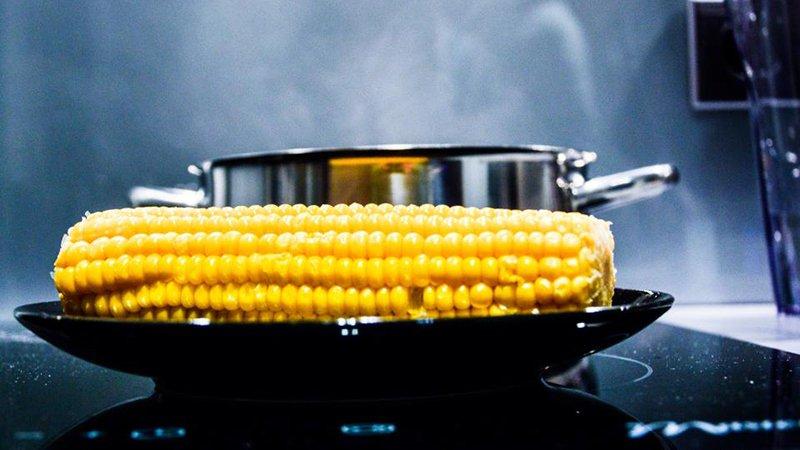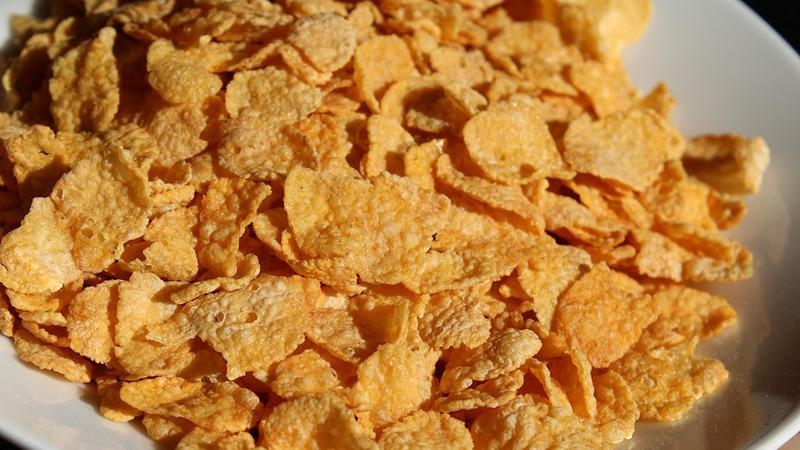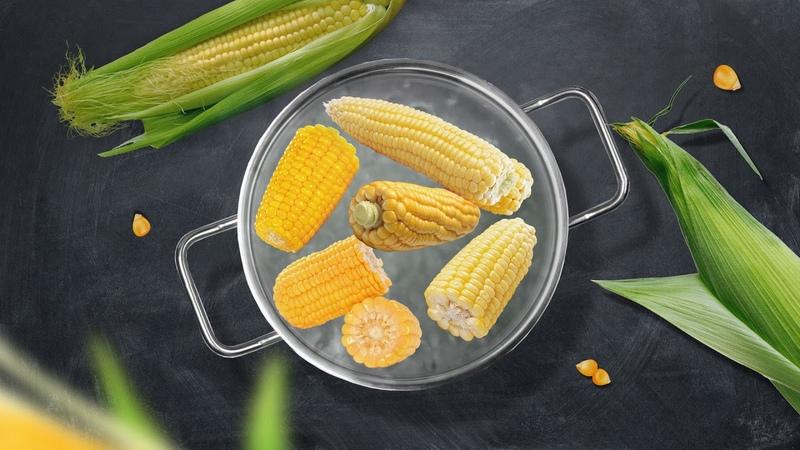Eating corn for gout: is it possible or not, how to eat it so as not to harm your health
Opinions about the benefits and dangers of corn with gout ambiguous. On the one hand, it contains a wide range of useful vitamins, micro- and macroelements that ensure the well-coordinated work of internal organs and systems. In addition, it acts as an antioxidant, activates metabolic processes, which is important for gout.
On the other hand, corn often causes undesirable consequences on the part of the digestive, cardiovascular system, worsens the general health of the patient. In the article, we will consider whether or not it is possible to use corn for gout, as well as identify its harm and benefits for the body.
The content of the article
What is gout
Gout is a rheumatic disease caused by the deposition of uric acid salts, first in the joints, then in the kidneys. It develops against the background of a violation of purine metabolism. As a result, crystals of uric acid and its derivatives form focal accumulations in tissues in the form of foci with the development of an inflammatory process.

At the heart of the onset of the disease, a genetic predisposition is considered, among the risk factors are obesity, high blood pressure, increased consumption of animal protein and alcohol, an inactive lifestyle. Gout is a side effect of drug therapy with diuretics or develops as a result of kidney disease, blood.
The disease begins with acute periodic pain in the affected area, more often it is the metatarsophalangeal joint of the first toe. Less commonly, the disease affects the knee, elbow, ankle joints, hands. The pain is sudden, acute, occurs spontaneously at night or under the influence of adverse factors (trauma, hypothermia, intake of fatty foods).
Visually, the skin over the site of the lesion is edematous, swollen, red or purple in color, the local temperature is kept at 37.1-38 degrees. Movement is difficult and accompanied by crunching, stiffness is felt. On days 3-10, the symptoms subside, a new attack may recur after a few months, even years, but over time, the intervals between gouty attacks become shorter and shorter.
The basis of conservative therapy are drugs that inhibit the production of uric acid, NSAIDs, glucocorticosteroids, B vitamins. Slowing down the course of gout will help diet. By correcting the diet, the level of uric acid is normalized, the general state of health improves, and the number of seizures decreases.
Limitations for gout
In the acute period, patients are recommended to completely exclude from the diet meat and fish broths, offal (kidneys, liver, brains, lungs), animal meat, fatty fish, alcohol, salt.
The restriction is imposed on chocolate, mushrooms, beans, spinach, radishes, sweetened drinks, cauliflower, eggplant. Be careful to eat eggs, red meats, lean fish.
reference... The best prevention of gout is vitamin C. Daily intake of vitamin C normally from 1 to 1.5 g per day reduces the risk of developing gout by 35%.
Is it possible to eat corn for gout
Nutrition for gout involves the use of dairy products, food of plant origin. The list of permitted foods also includes corn.Due to the large number of medicinal and useful components in the composition, as well as excellent taste, it is widely used in alternative medicine, everyday life and cooking.
Its main benefit for gout is the normalization of metabolic processes. In addition, it improves the absorption of protein and carbohydrates in the body, has a choleretic and diuretic effect. Eating raw, boiled or canned corn is allowed.
But eating cornflakes and popcorn it is desirable to limit, since these products are high in salt and sugar. They disrupt metabolic processes, thereby aggravating the course of the disease, creating the prerequisites for its exacerbation.
reference... The freshness of the cereal is determined by its appearance and weight: a fresh ear should be heavy, free from dry and moldy spots, with a brush from white to light brown.

Points for and against
Corn, when cooked and consumed correctly, has a positive effect on joints and periarticular tissues. However, the effect depends on the characteristics of the organism, the functionality of the organs of the digestive system, concomitant diseases, as well as on the form and quantity of it used.
People who believe that corn is beneficial for gout are guided by the following facts:
- nicotinic acid normalizes cholesterol and blood sugar levels, activates metabolic processes;
- vitamin B2 is involved in the production of other vitamins and amino acids necessary to maintain the normal functioning of the body;
- panthenolic acid eliminates hormonal imbalance, enhances the protective functions of the immune system;
- vitamin B1 has a tonic effect, ensures the coordinated work of all systems;
- tocopherol protects the cells of the body from external and internal toxic effects;
- ascorbic acid is necessary for the growth and repair of tissue cells, strengthens the immune system, resists infection, promotes the absorption of iron, accelerates recovery;
- potassium and sodium normalize water-salt metabolism;
- calcium strengthens bone tissue.
Corn is the only product that contains gold. A small amount of metal inhibits the progression of degenerative-dystrophic processes in the body, suppresses inflammation, and prevents the formation of cancer cells.
Maize, like any other product, has negative sides and can have an adverse effect on the body. Consider why it is advisable to give up corn for gout:
- the cereal contains not only omega-3 fatty acids responsible for the production of anti-inflammatory hormones, but also omega-6, which act as a kind of inflammatory mediators. When omega-6s outnumber omega-3s, an inflammatory process arises, which gives rise to diseases;
- cellulose fibers are almost not digested and in large quantities can provoke irritation and damage to the intestinal walls, heaviness in the stomach, adverse reactions such as flatulence, bloating;
- to protect maize from pests and increase resistance to adverse weather conditions, the plant is treated with chemicals. With the systematic use of such a product, toxins accumulate in the body, disrupting the functionality of internal organs and systems.
Corn is especially dangerous for people with impaired blood clotting. Cereals increase the viscosity of the plasma (blood thickening), which can result in an inflammatory process in the internal venous wall with the formation of a thrombus.
Harm and benefits of corn

Corn in moderation, provided that there is no history of contraindications, is useful for the body and has a multifaceted effect:
- enhances the formation of bile and promotes its secretion into the duodenum;
- increases the rate of urine formation, thereby reducing the fluid content in the tissues;
- activates metabolic processes;
- replenishes calcium deficiency, saturates the body with useful micro- and macroelements necessary for its vital activity;
- increases the level of red blood cells, thereby facilitating or preventing the development of anemia;
- soothes and normalizes the functions of the nervous system;
- slows down oxidative reactions, enhances regeneration processes and slows down aging;
- ensures normal growth and development of the immune and circulatory system;
- reduces the toxic effect on the body of factors of the external and internal environment.
When consumed in large quantities, corn has an adverse effect on the body, causing heaviness, flatulence, and bloating. It is recommended to limit its use or completely exclude it from the diet for people suffering from thrombophlebitis, as well as with hypersensitivity, during an exacerbation of an ulcer and duodenal ulcer.
Is it possible to eat boiled corn for gout
Provided there are no contraindications on the part of the digestive system and the tolerance of the product, the use of boiled corn for gout is allowed. The optimal time for maize is a period of stable remission.
It is advisable to choose cobs of milk maturity - they are tastier, cook faster, contain more nutrients that are not lost after heat treatment.
Advice... To improve the taste, use hot corn with a little butter but no salt. Salt for gout is prohibited - it retains fluid in the body, which leads to the progression of the disease, the emergence of new gouty attacks.
Canned

Canned corn contains starch in high doses, and this is a valuable carbohydrate, which forms the basis of the diet of patients with gout, converts energy, promotes the excretion of uric acid. In addition, during conservation, the amount of sodium in the grains, which is responsible for the normalization of the water-alkaline balance, increases.
There is also a downside to the coin. Producers can use old or spoiled ears, add citric acid, sugar, salt and other additives to improve the taste. All this increases the risk of exacerbation of the disease.
The conclusion is this: canned corn is allowed to be consumed with gout, but it is better if it is cooked on its own or on condition that you are confident in the quality of the product.
Advice... Buy corn in glass containers to immediately assess the condition of the grains, the color of the marinade. In addition, if the established norms were not observed when preserving corn in metal cans, there is a risk of metal oxidation - then the product is saturated with toxins and becomes dangerous.
Popcorn

It is sold sweet and savory. Eating this type of corn is not recommended for gout. But if you cook popcorn at home without sugar, salt and other spices, it is quite possible to feast on, but in moderation and not every day.
Flakes

Cornflakes are made up of crushed, peeled kernels, licorice syrup, salt, sugar and water. In fact, they contain foods that are harmful to people with gout. However, the flakes are loaded with cornstarch, which promotes muscle growth and formation.
They also contain pectins, which are responsible for the regulation of metabolic processes, useful micro-macroelements that saturate the body with zinc, calcium, potassium, magnesium, iron, sodium. Therefore, cornflakes for gout in moderate doses are allowed.
In what cases is corn contraindicated for gout?
The reason for the restriction of corn in the diet of patients with gout is such diseases and pathological conditions as:
- increased blood clotting, predisposition to blood clots, thrombophlebitis;
- diseases of the gastrointestinal tract: corn grains, especially immature ones, are difficult to digest, break down and digest in the stomach;
- acute course of gastric ulcer and duodenal ulcer - the use of corn can provoke diarrhea, bloating, worsen overall health;
- individual intolerance to the product;
- anorexia syndrome with loss of fat mass, since corn provides long-term satiety, reduces appetite.
reference... Due to the content in the composition in a large amount of fructose, it is recommended to use it with caution for people with diabetes.
How to protect yourself when using

In order not to harm the body, it is important to adhere to the following rules:
- do not abuse the vegetable and dishes with it;
- consult a doctor before use in order to exclude possible risk factors and contraindications;
- include in the daily diet along with raw eggs, milk, different types of cheese;
- in the acute period of gout, limit the use of bread and rich products from corn flour;
- in case of allergies, a feeling of heaviness in the abdomen, upset stools, flatulence, exclude corn from the diet;
- choose fresh and preferably home-grown ears;
- do not use canned corn for diseases of the cardiovascular system;
- refuse boiled corn for ulcers, gastritis, pancreatitis, and other gastrointestinal diseases.
When and in what quantities
It is advisable to include corn in the diet no more than two to three times a week, preferably during a period of stable remission. The daily rate depends on the patient's age, the characteristics of the course of the disease, the presence of concomitant pathologies, the state of the digestive system.
The average adult recommends one ear of boiled or 100-150 grams of canned corn. Flakes are suitable as an addition to the main food, normally - 30-40 g at a time in combination with milk or low-fat yogurt, kefir. 100 g of popcorn as a snack between breakfast and lunch will be enough if you don't want to harm your health.
Conclusion
Corn is a source of carbohydrates that form the basis of the diet for people with gout. In moderate doses, it has a beneficial effect on the body: it helps to normalize metabolic processes, prevents the occurrence of new gouty attacks.
However, in order to reduce the risk of developing unwanted reactions, it is better to choose the cobs grown at home or preserve and cook popcorn on your own.